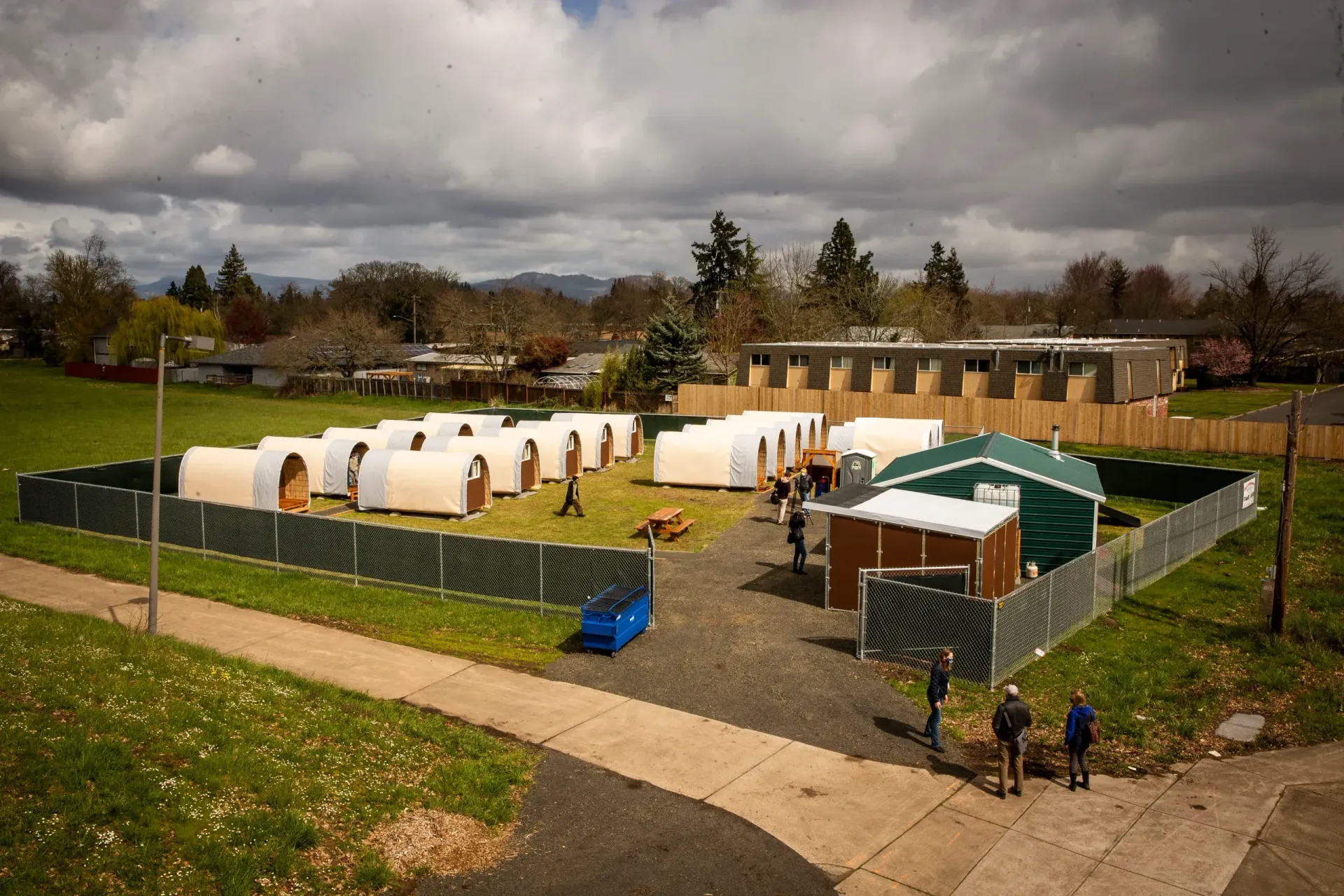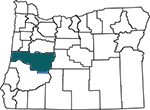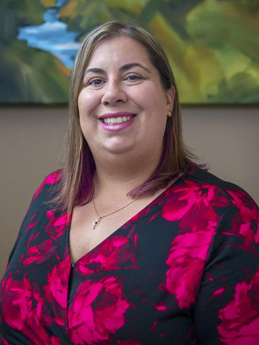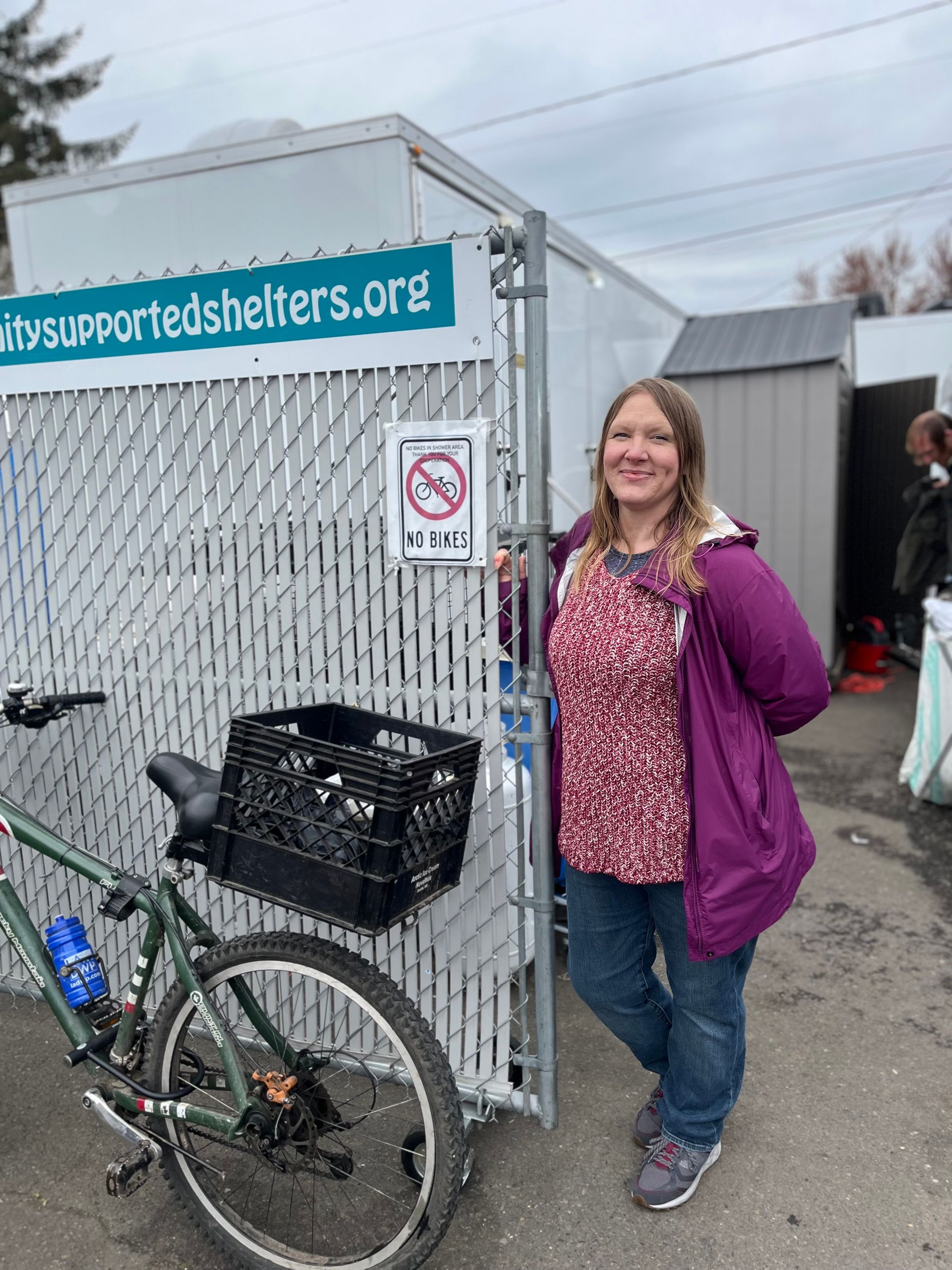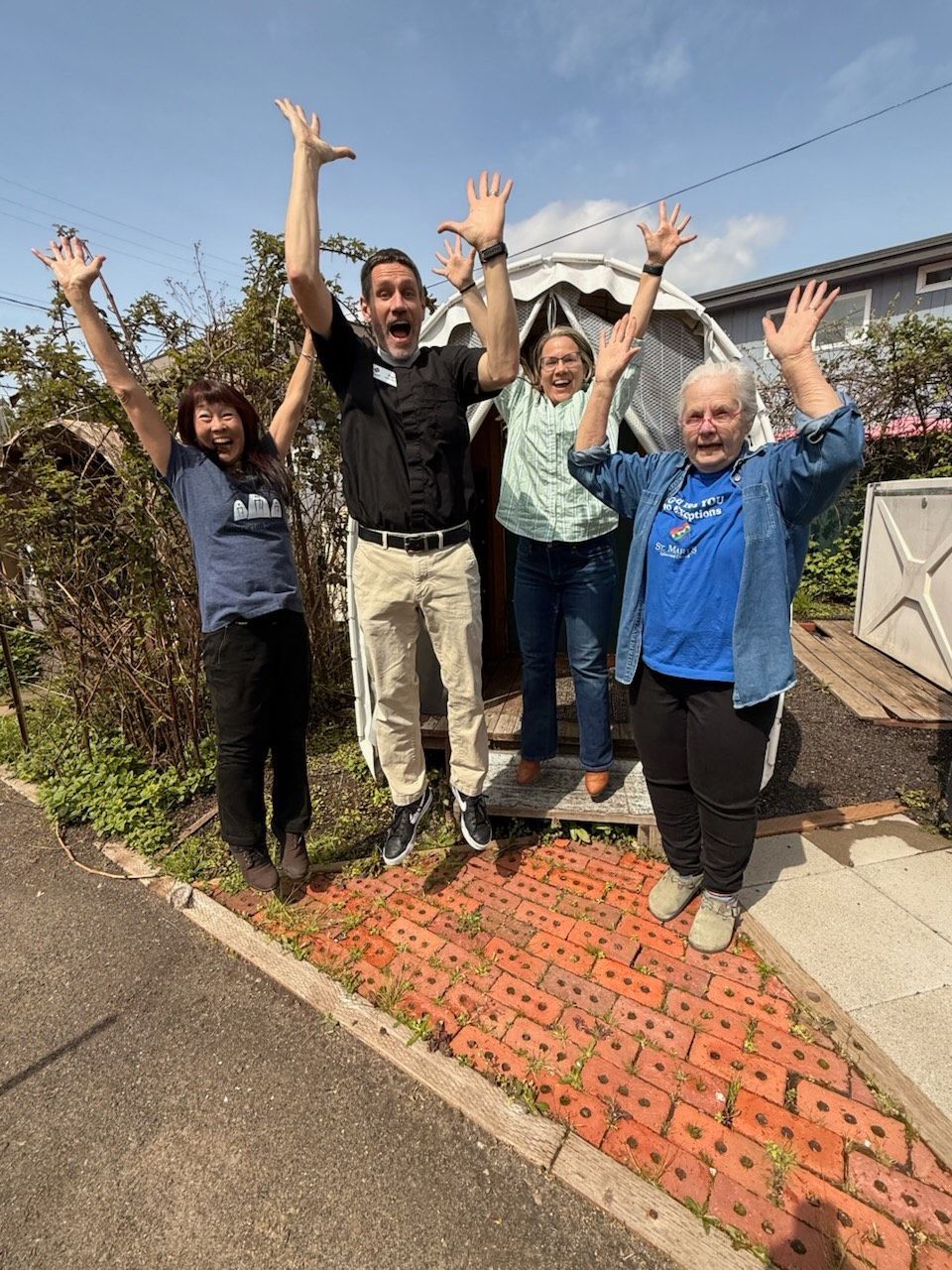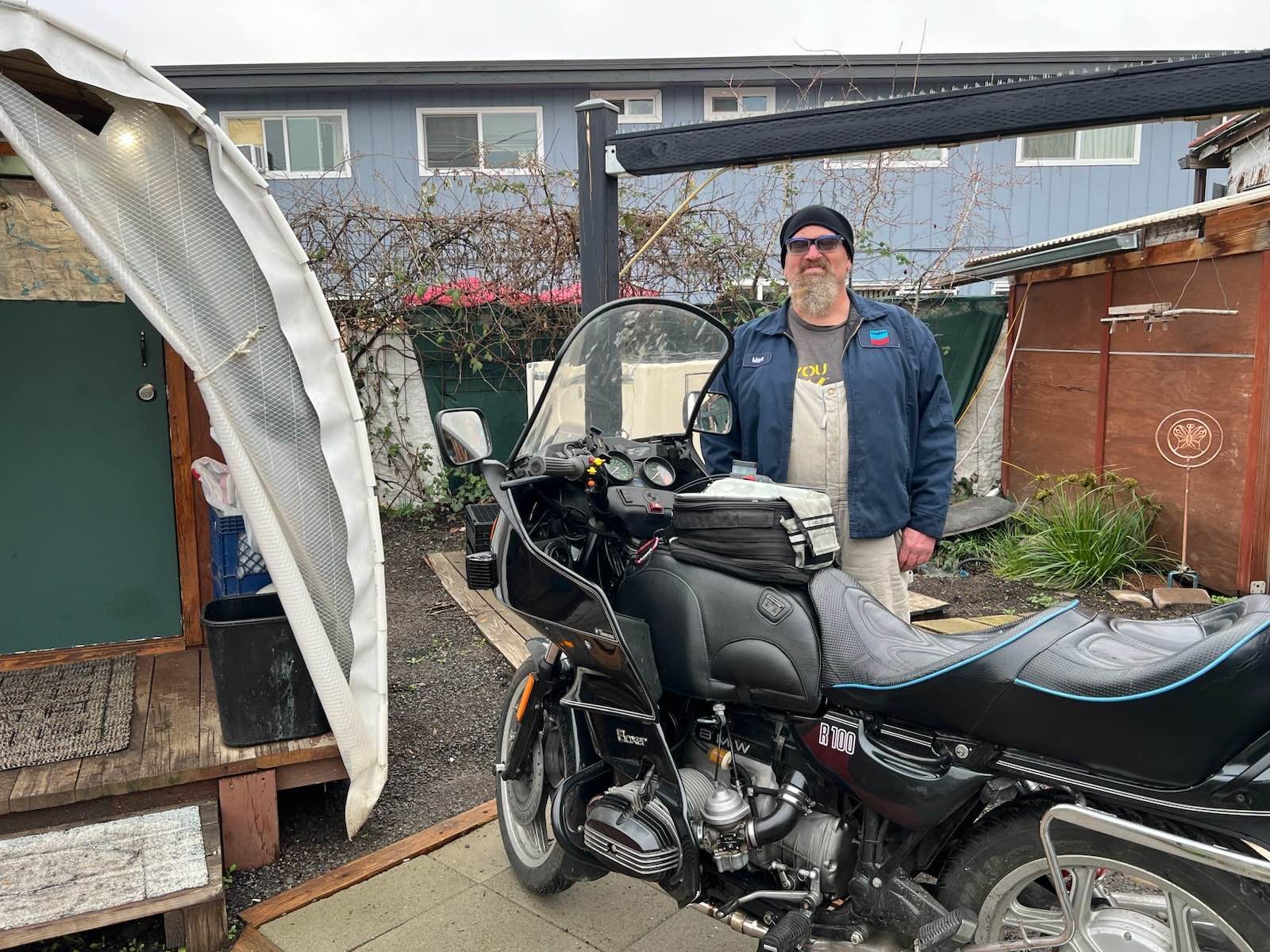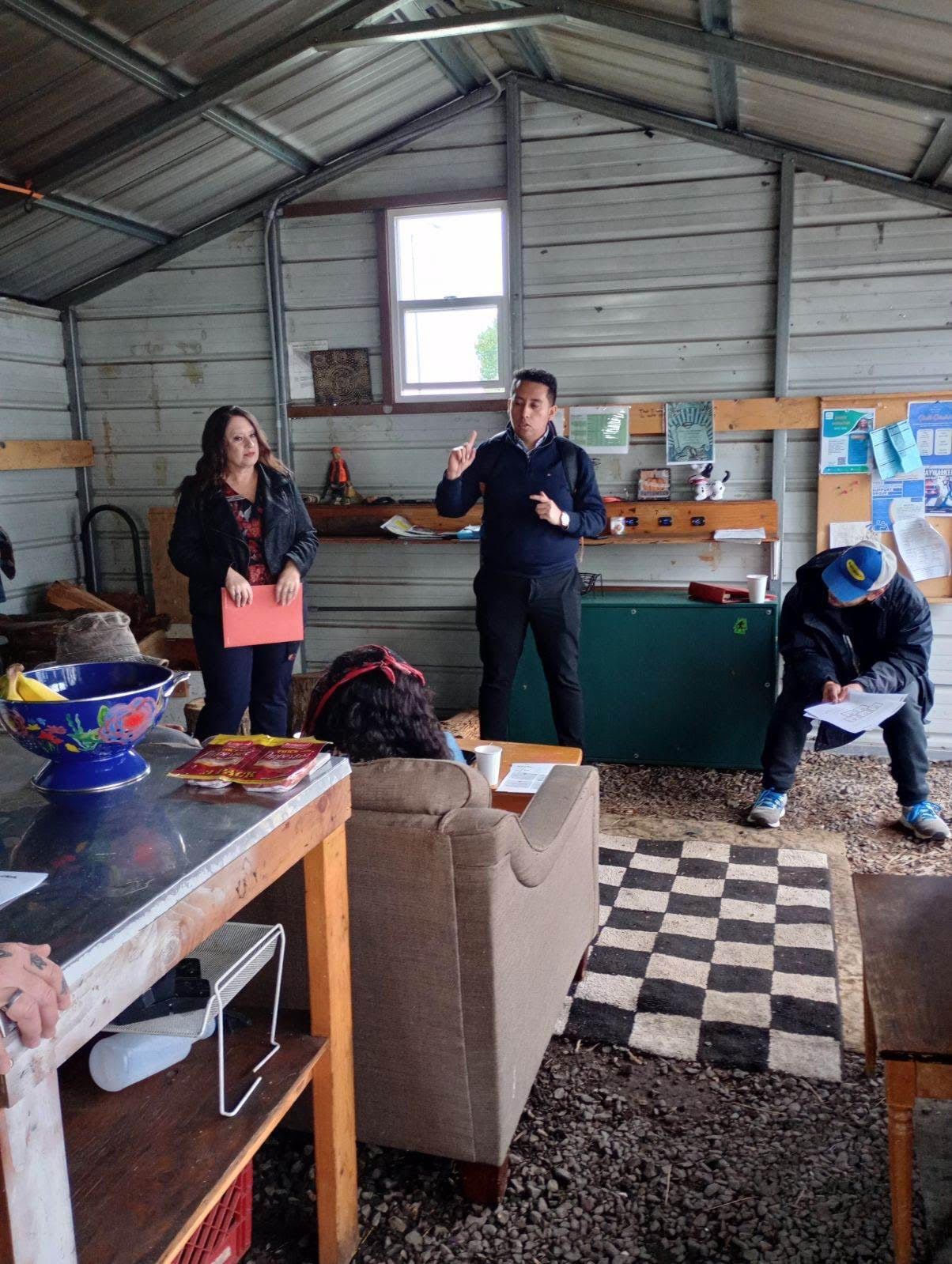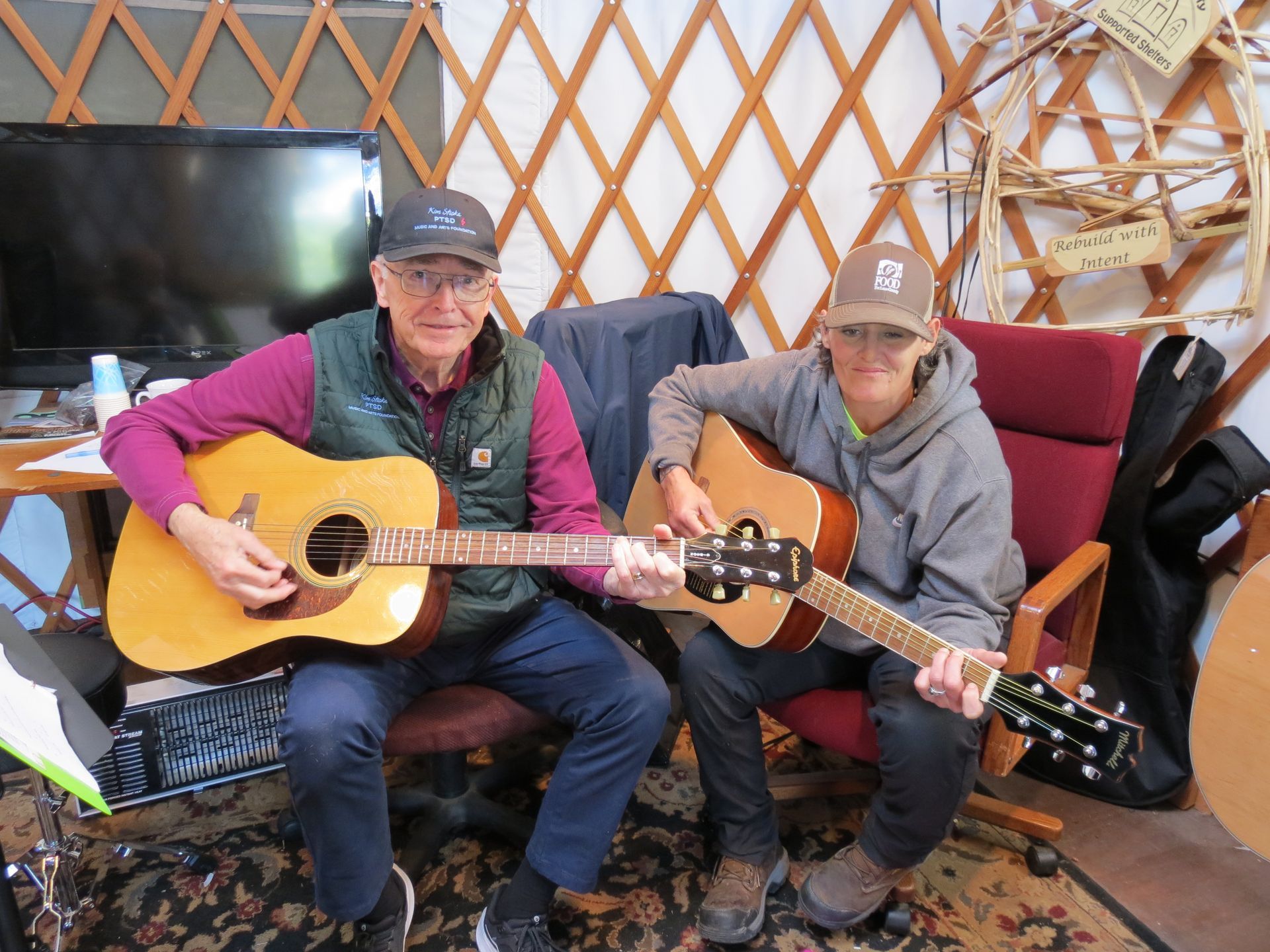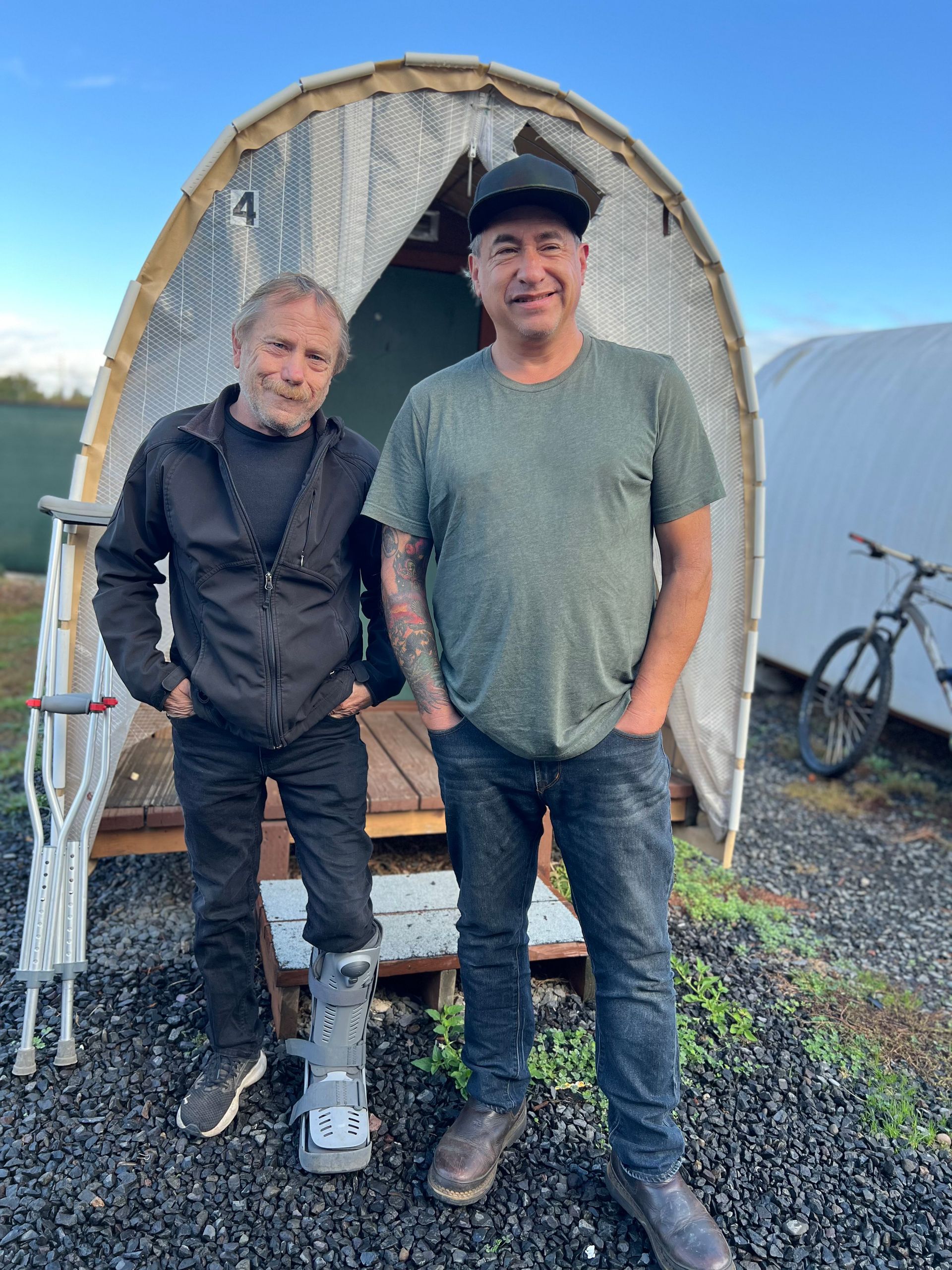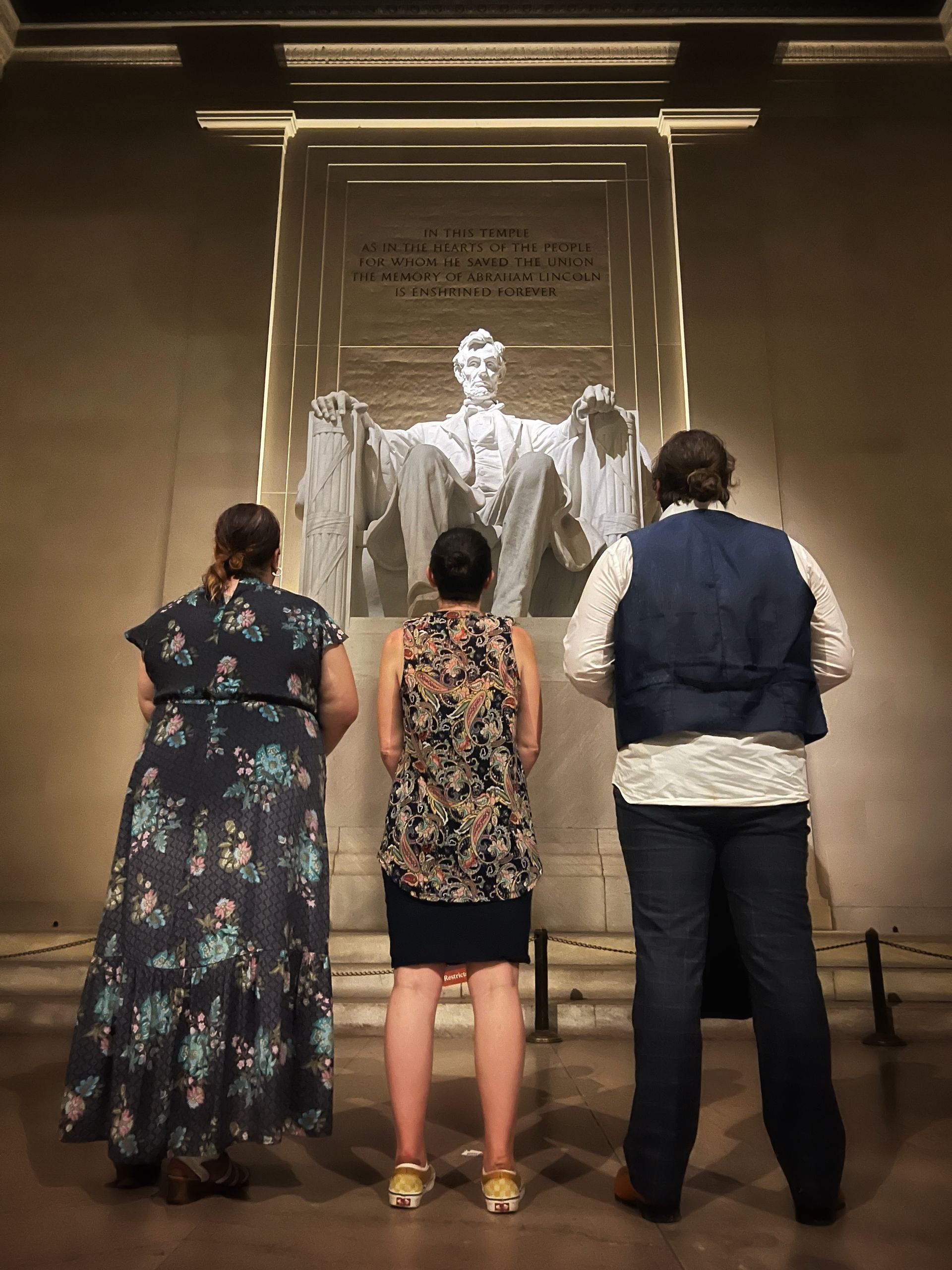Not Quite All-in Funding
Oct. 12, 2023 - By Guy Maynard
Seventeen Lane County organizations running 28 programs addressing homelessness recently received a total of $18.4 million from Governor Tina Kotek’s emergency homelessness program through an effort called “All-In Funding.” Community Supported Shelters was not one of them.
CSS is a participating member of the City of Eugene Shelter Consortium, which is coordinated by City staff members and also includes Everyone Village, St. Vincent de Paul, Carry It Forward, Square One Villages, and Nightingale Hosted Shelters. All the groups but CSS and Nightingale received All-In Funding.
After attending all the meetings that Lane County—the lead organization for this area—held about the All-In program and studying its requirements, CSS leadership decided not to apply. Ongoing CSS programs did not meet the criteria to be eligible for funding and the leadership decided it did not make sense to launch a new program with only six months of guaranteed funding.
“We’re still doing a lot of stuff with the folks that did receive the All-In Funding,” says Heather Quaas-Annsa, CSS Director of Philanthropy. “We are collaborating with the other members of the consortium to figure out how to best serve the constituents that we are working with in Eugene.”
Still, Heather says, it’s disappointing that with the acknowledged success its programs have had, CSS was left out of receiving any direct All-In Funding because of its emphasis on new programs and other restrictions.
The statewide All-In Funding program has the immediate goals of preventing homelessness for 8750 households, expanding shelter capacity by 700 beds, and securing housing (“rehousing”) through rent vouchers and other support for 1650 people experiencing homelessness. Those goals are due to be achieved by January 10, 2024. Six regions designated as emergency areas will receive about $130 million and “the balance of the state” will receive about $27 million.
Goals for Lane County, one of the emergency areas, are 741 households prevented from becoming homeless, 230 new shelter beds, and 247 households moving from being unsheltered to permanent housing.
“One of the biggest things that prohibited us from applying was the inability for us to ‘blend’ funds,” Heather says. “Because the majority of our sites are on City of Eugene property, and because we had already received a contract from the City of Eugene to support our sites, none of our sites were eligible for the All-In Funding.”
“Had we had the opportunity to play in this field, we could have potentially expanded our beds at any of our shelter sites,” Heather says. “We have a couple of microsites where we could have added up to 12 beds. We already have the infrastructure there. We already have the staffing. It’s not that hard for us to add 12 more Conestoga Huts at a site. And so we would’ve loved the opportunity to be able to do something like that rather than have to build an entire new site with all new infrastructure.” She adds that a new site would only have been eligible if it were on property not owned by the City.
“It just didn’t make fiscal sense to try to start a new site,” Heather says, “hire for a new site, train staff, and then not know where funding was coming from after mid-January.”
The one exception to the requirement that all programs receiving funding have to be new is that funds can be used to upgrade shelters designated as “alternative shelters” or “encampments,” such as CSS’s Conestoga Huts, to “emergency shelters.” To qualify as emergency shelters, according to the All-In Funding requirements, Huts would have to have electricity, plumbing, and showers available on-site.
But the stipulation against “blending funds” also precluded CSS from receiving those funds. CSS is working with the City of Eugene to bring in electricity and plumbing to some sites, Heather says. “Again, we’re on City property, we have to wait for City approval, and the City is funding the movement of the sites from encampments to emergency shelters. So there was just no way for us to get any of those dollars.”
Even if blended funds were not an issue, CSS communities do not meet the All-In Funding’s low-barrier shelter standards because of the number of pets allowed and the requirement that residents attend meetings. Eliminating meetings “would just not work for us,” Heather says. “One of the reasons our program works is because we build a sense of community.”
So, CSS reluctantly decided not to apply, though four members of the consortium combined in a single application prepared by City staff members.
“The consortium extensively discussed strategies for seeking and using All-In Funding,” according to Kelly McIver, City of Eugene’s Communications Manager for Homeless Response. “Group participants were aware of and supportive of the approach used: sites that could convert to emergency shelter without a significant change to program model and outcomes would be part of the City’s application for emergency shelter funds.
“A key aspect was also that to qualify for that funding, CSS would have had to adhere to low-barrier standards that would change the nature of its program,” according to McIver. “CSS believes in the value and efficacy of its shelter approach. The City shares that value, and CSS is an important part of a diverse network of shelter offerings to better serve a complex constituency.”
The consortium received $2.4 million to upgrade 166 beds to meet emergency shelter requirements and create 62 new emergency shelter beds. City staff also oversee how the funding is spent and handle administrative responsibilities associated with it. “That was really fantastic of the City to go that route,” Heather says. Two of the consortium members—Carry It Forward and St. Vincent de Paul—also received funding on their own in different program areas or for programs outside of the city.
CSS continues its involvement with the consortium members who did receive funding, looking for ways that CSS can help develop more cohesion and collaboration. “We’re all doing everything individually,” Heather says. “So, we know that we’re spending an exorbitant amount of money. If we were working together on getting supplies, we could definitely save some money. We’re exploring different ways that CSS and our current staff could support the other organizations in furthering their missions and being more conscientious of how dollars are being spent.”
“The consortium has discussed how programs could complement one another and how the City could help with efficiencies, and those efforts were underway before All-In,” according to McIver. “The City and the participants work to transfer clients between programs as practicable, work is underway on a common application form, and the City is prepared to use its purchasing power to decrease supply and materials costs for the different agencies. All-In administrative funding has been passed through to the organizations and not held by the City, so may or may not contribute in some way to what have been ongoing conversations about working better together.”
The consortium has already started to improve the process of transferring clients from one program to another, Heather says. “So if an individual enters into a shelter and they don’t work out there for whatever reason, perhaps there’s a shelter bed at our site or at one of the other Eugene consortium sites that would be a better fit for them. Instead of having that individual go back out on the street, go back on a waitlist—and God only knows what happens in between—we’re hoping just to move them from one shelter to another.”
Recently five people from the Dwayne Woods Carry It Forward site transferred to several different CSS sites. “They immediately went from their site over to one of our sites,” Heather says. “Because they were already sheltered with a partner agency, they weren’t on a four-to-six month waitlist before entering one of our sites.”
The consortium members are also discussing collaborating on training and coordinating volunteers.
“All of us do better when we’re working together as a group to provide solutions for the unhoused in our community,” Heather says
CSS also plans to “beef-up” its consulting services for organizations, including those receiving All-In Funding, outside of Lane County—to go beyond a PowerPoint presentation and a tour, Heather says. CSS offers a variety of services depending on the needs of the organization. “If they have questions about what our model looks like,” Heather says, “or if they’re interested in building Conestoga Huts instead of spending $10,000 to $15,000 on sleeping pods, we are interested and willing and happy to work with them. We can show them, ‘here are our applications, here’s our forms, here’s guidelines, and here’s frequently asked questions and things that we’ve seen go wrong and best practices we have developed.’ We want to share our knowledge to help them succeed in this. We’ve been doing this work for a decade and we have proven results.”
“I am really pleased that we’re moving the needle across all three of the program areas,” says Lane County’s Kate Budd about the All-In funded programs in the county. “I think it took a bit longer for the programs to get off the ground and start, but I’m pleased to see that each focus area is starting and that our contracts are all now executed, which allows the agencies to move forward.”
As of September 25 , Lane County programs receiving All-In Funding had reached 23 percent (167 of 741 households) of the goal of stabilizing households at risk of homelessness, 15 percent (37 of 247 households) of moving households from being unsheltered into permanent housing, and 90 percent (207 of 230 beds) of creating new emergency shelter beds or improving alternative shelter or encampment beds to qualify as emergency shelters.
After the initial All-In Funding money runs out on January 10, 2024, a new “bucket” of money will be made available through June 30, 2025, but as of September 25, how much money and what programs it will go to is not known.
OHCS states it “will allocate additional local funds based on households rehoused and shelter beds created during the state of emergency. The intent is to ensure stability for the individuals served during the emergency response. OHCS does not anticipate changes to eligibility requirements after January.”
“I think there’s always a possibility for change,” Budd says, “I understand that the second bucket of the January 11 dollars and on is meant to be a continuation of dollars in this current bucket. I would predict that the odds of things changing considerably are low, but again, the Governor is very much at the helm of these efforts and could make changes before the next bucket is released.”
Heather would love the Governor and her staff to come to Eugene “to actually see what the shelters in Eugene are doing and to give her an idea of what it looks like when things are working optimally, or as close to optimal as you can in this field, and maybe use that to steer how she’s making decisions moving forward in terms of funding and requirements—figuring out how to support the work that is being done rather than requiring new work. It’s a lot easier for organizations to scale up what they’re already doing rather than to create something new.”
Comments from the public about the All-In Funding program can go OHCS at EO2302questions@hcs.oregon.gov.


